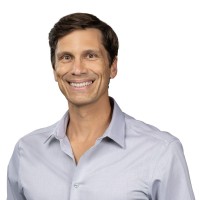
As competition grows among DSOs, more weight will be put on how companies support their providers and keep patients at the focus.
Four DSO executives recently joined Becker’s “Dental + DSO Virtual Event” to discuss how emerging organizations are setting themselves apart from more established DSOs, as well as what their success will depend on.
Editor’s note: Responses were lightly edited for length and clarity.
Question: How are newer DSOs and smaller groups differentiating themselves from some of the larger legacy players? What do these newcomers need to succeed?
Haim Haviv. Founder and CEO of Hudson Dental (New York City): I think being able to offer the doctors autonomy and really sticking to that. Offer them autonomy. Offer them the equity as a newer company or a company that’s establishing in an area. It is easier to do these things because you can be more flexible. You don’t have as many precedents in that area, and you can come and say, “Okay, this makes sense to do, and this is what we’ll offer you.” The other thing is being more patient-focused, understanding the demographics, and operating in a way [in which,] for better or for worse, you’re not set in your ways. There are pros and cons to that, but you’re not set in your ways as a new group or a group that is branching into a new demographic.
The last one is technology. When you go somewhere new, you [can] say, “Okay, how about I pilot that technology here, and then I can take it to the larger group.” … You have that freedom to adapt and adopt more technologies, and I think for new groups, that’s really helpful coming to a new area or just being brand new.
Jeremy Jonckheere. Vice President of Strategic Payer Partnerships at PDS Health (Henderson, Nev.): You’ve got to be great for dentists and great for patients to succeed. There are a lot more conversations happening about integrated systems and integrated health. You’ve got to have a scalable platform. I really appreciate that you try stuff in some areas, but you have to be able to grow and grow it across a platform to get all those economies of scale [and] to get the opportunities that are there … You see people coming in who are just trying to be acquired. You have to remember, healthcare is not retail. A lifetime patient is better than a new patient when you’re talking about long-term growth. So looking at the investment horizon of those new DSOs coming in is a big value indicator that we would look at or that we see changing. The groups that are doing it right [are] focused on patient experience [and] clinician experience with a strong health-oriented culture. That’s what makes these new groups potentially really strong.


